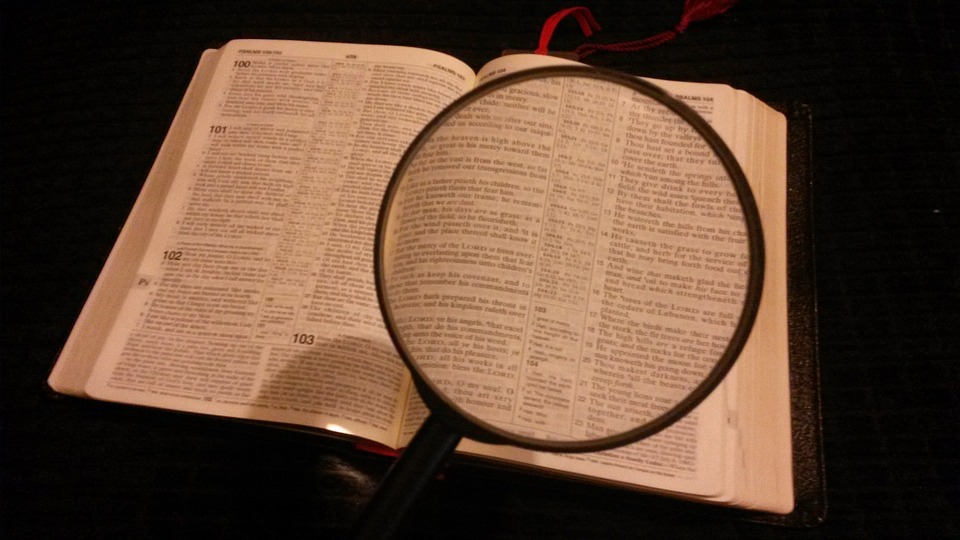5 Strong Bible Study Habits
Biblical illiteracy is a problem in America. Within American churches, it may not be about not reading the Bible, but more a matter of fully comprehending its teachings.
I hear Christians misquote and misapply the scriptures. They’ve read the words on the surface of the page but failed to plunge deeper. Many allow other voices to interpret for them. To prevent such mistakes, the following five practices turn Bible reading into Bible Study.

Saturate Your Reading with Prayer
Start praying before you start reading. Anticipate God’s desire to communicate to you. As you read whisper a prayer for clarity of thought. After reading, request God’s help in obeying His word.
Sit in the Original Audience
Parts of the Bible can be confusing. Remember that no matter what part of God’s word you read from, it was written thousands of years ago.
It’s natural to want to insert 21st-century thinking. But we can’t assume. The Bible includes centuries of cultural change. We’re far removed from understanding everything the original audience understood.
Some think the Apostle Paul hated women. There are cultural reasons for things he said. But a closer reading of his epistles shows that he valued women. Some were his co-workers or women he honored (for instance, Lydia, Priscilla, Claudia, and Phoebe).
Translators try to bridge the gap. Bible publishers offer footnotes and other resources. Bible handbooks, Bible encyclopedias, and commentaries draw us closer to sitting in the original audience.
Explore Every Room
Don’t treat any Bible verse as the only room in the house. Study the rooms connected to it. If you choose a room in the middle of the house, go back to the front door and walk toward the room you chose. Then continue through the house.
Reading verses out of context leads to erroneous conclusions about God. Cults and other groups owe much of their odd theology to good Bible verses taken out of context.
You need the entire house. The Bible did not originally have chapter breaks, but reading a chapter from start to finish will prevent a lot of confusion.
Stay in the Neighborhood
The initial reading of only the first chapter of Jonah may lead to a wrong conclusion: that he died in the fish’s stomach after three days. Nor should reading stop after Ninevah’s revival in chapter three. That would neglect a revealing part of the book.
There’s plenty to miss when quitting part-way through a longer book of the Bible. A book with 30 chapters or more is like a neighborhood full of admirable architecture. If you exit a block too soon, you’ll miss some grand elements of God’s design He wants you to discover.
When you’ve read the book of Numbers leading up to the story of Balaam, he and his talking donkey make sense. But they don’t appear until chapter 22 out of the 36. In Isaiah, the great Messianic references are peppered throughout its 66 chapters. They’re worth continued reading.
Stay in the neighborhood until you’ve seen all of it’s exquisite wonders. You’ll be glad you did.
Take it Personally
If you’re reading a narrative of events, ask yourself, “What if I was the main character in this account?” or “What if I was watching from the sidelines?”
What about Zacchaeus, the short tax-collector who cheated his fellow townspeople and climbed up a tree to see Jesus? How can I relate to his story? I’m not short. I’m not a tax-collector. I don’t swindle my neighbors. Nor do I climb trees. But I can relate to him.
When Jesus went to his house, Zacchaeus became repentant. Jesus forgave him. Jesus concluded, “For the Son of Man has come to seek and to save that which was lost” (Luke 19:10, NKJV). I read about Zacchaeus and recognize my own need to repent.
The right question is always, “How does this scripture apply to my life right now?”
The Road Ahead:
- In the warmer seasons, both butterflies and bees collect pollen from flowers. Butterflies skirt around the surface of a flower. They don’t leave with much. Bees go deeper. They emerge from inside a flower covered with pollen. This year, will you commit to being a bee rather than a butterfly when it comes to your Bible reading?
- To strengthen your next Bible reading, choose one or more of the following to focus on— saturate your reading with prayer, sit in the original audience, explore every room, stay in the neighborhood, and take it personally.
Further Fuel: II Timothy 2:15; Psalm 119:105; James 1:25.